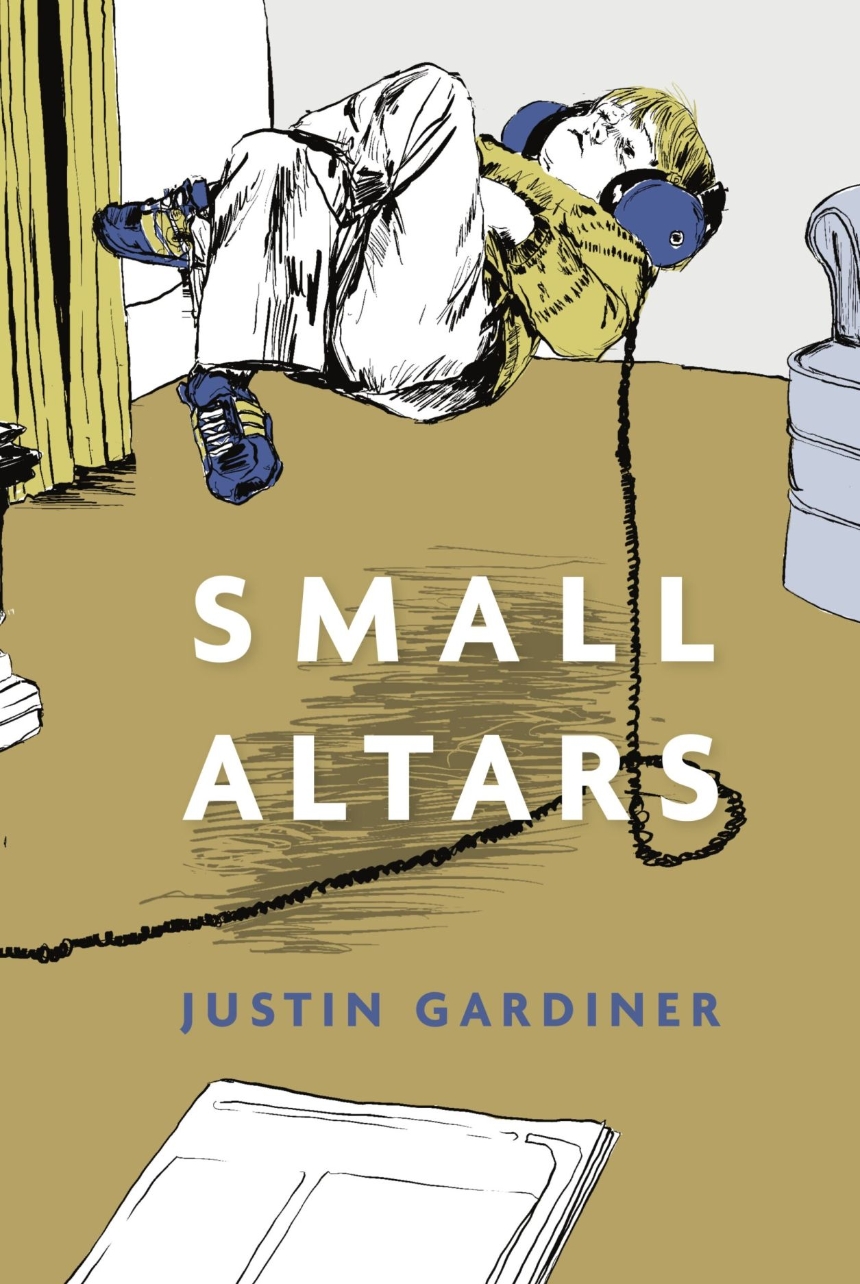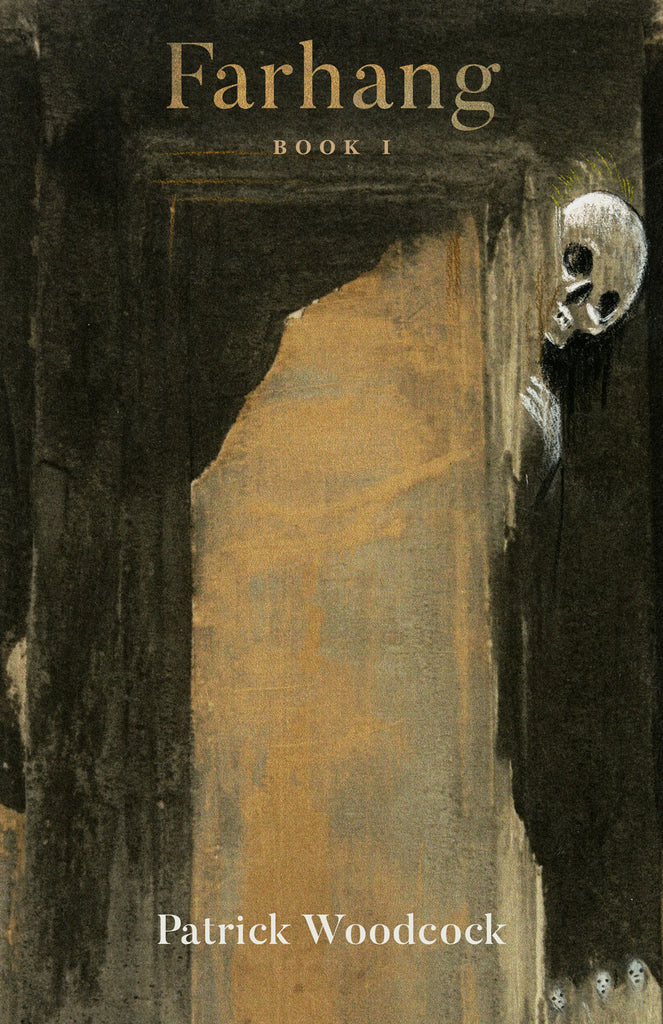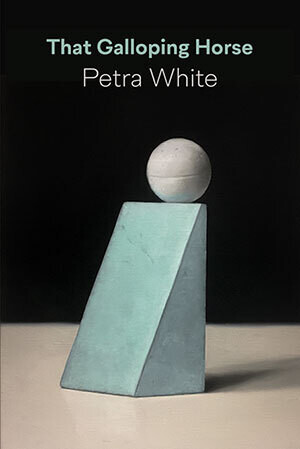 Light and heat serve as central metaphors for comfort. They represent the warmth Danon so desperately craves as an antidote to the cold she fears. Her fear is deeply rooted in the uncertainty and anxiety that accompany illness and hospitalization.
Light and heat serve as central metaphors for comfort. They represent the warmth Danon so desperately craves as an antidote to the cold she fears. Her fear is deeply rooted in the uncertainty and anxiety that accompany illness and hospitalization.
Tag: poetry
A review of Small Altars by Justin Gardiner
 While the reader gets a sense of the arc of Aaron Gardiner’s life, Small Altars is written in short, episodic passages, jumping back and forth in time, some describing family scenes, others expository discussions of medical conditions, from schizophrenia to various cancers, the elements of comic book composition (both “on the page” and in conception as character and plot), biographical descriptions of various historical personalities – Claude Debussy, Arthur Rimbaud, Paul Verlaine, Georges Remi among them – and more.
While the reader gets a sense of the arc of Aaron Gardiner’s life, Small Altars is written in short, episodic passages, jumping back and forth in time, some describing family scenes, others expository discussions of medical conditions, from schizophrenia to various cancers, the elements of comic book composition (both “on the page” and in conception as character and plot), biographical descriptions of various historical personalities – Claude Debussy, Arthur Rimbaud, Paul Verlaine, Georges Remi among them – and more.
A review of Farhang Book One by Patrick Woodcock
 Each poem is a work of art to be read and revisited time and again. Like a painting, the line length and shape of the poem can be continuously analysed and when we look at Woodcock’s work this way, we notice that even the most thematically brutal of poems can contain exquisitely beautiful images, full of nuance, subtlety and shade.
Each poem is a work of art to be read and revisited time and again. Like a painting, the line length and shape of the poem can be continuously analysed and when we look at Woodcock’s work this way, we notice that even the most thematically brutal of poems can contain exquisitely beautiful images, full of nuance, subtlety and shade.
A review of Flatback Sally Country by Rachel Custer
 Using simple language, in a variety of poetic forms, Custer has created a powerful work that called out to me for compassion. I’ve heard Custer read from this collection and now, reading the entire book, I must say there is only one thing that could add to the beauty and impact of the work: performing the complete collection on stage as a choreographed play.
Using simple language, in a variety of poetic forms, Custer has created a powerful work that called out to me for compassion. I’ve heard Custer read from this collection and now, reading the entire book, I must say there is only one thing that could add to the beauty and impact of the work: performing the complete collection on stage as a choreographed play.
A review of The Elk in the Glade and Good Housekeeping by Bruce E. Whitacre

 Storytelling itself is also a kind of good housekeeping, an ordering of the random elements of life into story, to assert our place in the world. Whitacre is a storyteller, someone who sees the narrative threads that connect us, binding our lives not only to our immediate family, but our farthest neighbors and the planet we all have in common. Both these collections bask in those connections and in the subtleties of a good poetic ear.
Storytelling itself is also a kind of good housekeeping, an ordering of the random elements of life into story, to assert our place in the world. Whitacre is a storyteller, someone who sees the narrative threads that connect us, binding our lives not only to our immediate family, but our farthest neighbors and the planet we all have in common. Both these collections bask in those connections and in the subtleties of a good poetic ear.
A review of Fat Chance by Kent MacCarter
 The mingling of an unlikely, extraordinary outcome with ordinary beginnings forces our assumptions into a stark light. This doesn’t only happen semantically. It is also in the conjunction between different types of media, textual, rhythmic and visual – with source texts like newspaper clippings, medical case studies, and historical cast-off images woven into a story that melds chance, proximity, and banality into a cohesive poetics that is unsettling and oddly moving.
The mingling of an unlikely, extraordinary outcome with ordinary beginnings forces our assumptions into a stark light. This doesn’t only happen semantically. It is also in the conjunction between different types of media, textual, rhythmic and visual – with source texts like newspaper clippings, medical case studies, and historical cast-off images woven into a story that melds chance, proximity, and banality into a cohesive poetics that is unsettling and oddly moving.
A review of The Galloping Horse by Petra White
 The Galloping Horse encourages an exploration of complex emotions and experiences, offering a way to process the more challenging aspects of life with a deep authenticity combined with skilful use of language and the ability to resonate with the reader on a deep level especially with melancholic subject matter.
The Galloping Horse encourages an exploration of complex emotions and experiences, offering a way to process the more challenging aspects of life with a deep authenticity combined with skilful use of language and the ability to resonate with the reader on a deep level especially with melancholic subject matter.
A review of Turn Up The Heat by Ruth Danon
 Her writing appears to be straight forward. The language can be ordinary. It is simple in the best possible meaning of that word. Then, one reads more slowly or reads a lot in one sitting and finds one’s self looking for that other poem,
Her writing appears to be straight forward. The language can be ordinary. It is simple in the best possible meaning of that word. Then, one reads more slowly or reads a lot in one sitting and finds one’s self looking for that other poem,
The Hand of Fate: A review of Unbound by Sinead McGuigan
 A place of oceans and mountains, rivers and dreams, myths and a reality that references the nightmare of history and celebrates the wonder of being. Unbound takes readers on a journey. A journey of the self affirms the value of all selves—this journey, going from one place to another. The poems wander; they look in, they reach out.
A place of oceans and mountains, rivers and dreams, myths and a reality that references the nightmare of history and celebrates the wonder of being. Unbound takes readers on a journey. A journey of the self affirms the value of all selves—this journey, going from one place to another. The poems wander; they look in, they reach out.
A review of Bright-Eyed by Sarah Sarai
 Sarah Sarai is full of good humor, earned wisdom and sound advice, not just for her nephew and niece but for all of us. But as she wittily cautions at the start of “A Vegas Vegan,” “I never promised you a statistician.” Nor a rose garden either! But you’ll enjoy her poetry nonetheless, no matter how perplexed you remain.
Sarah Sarai is full of good humor, earned wisdom and sound advice, not just for her nephew and niece but for all of us. But as she wittily cautions at the start of “A Vegas Vegan,” “I never promised you a statistician.” Nor a rose garden either! But you’ll enjoy her poetry nonetheless, no matter how perplexed you remain.